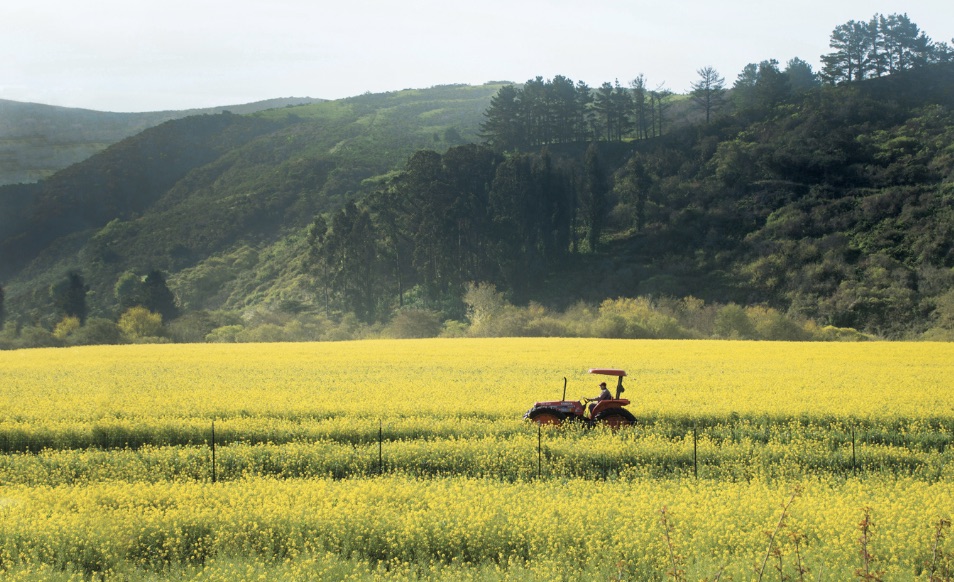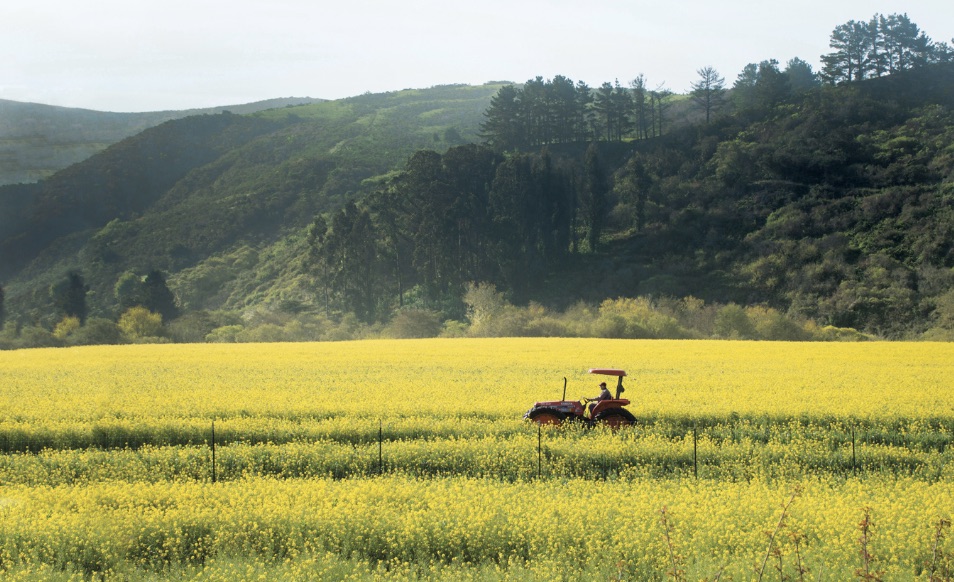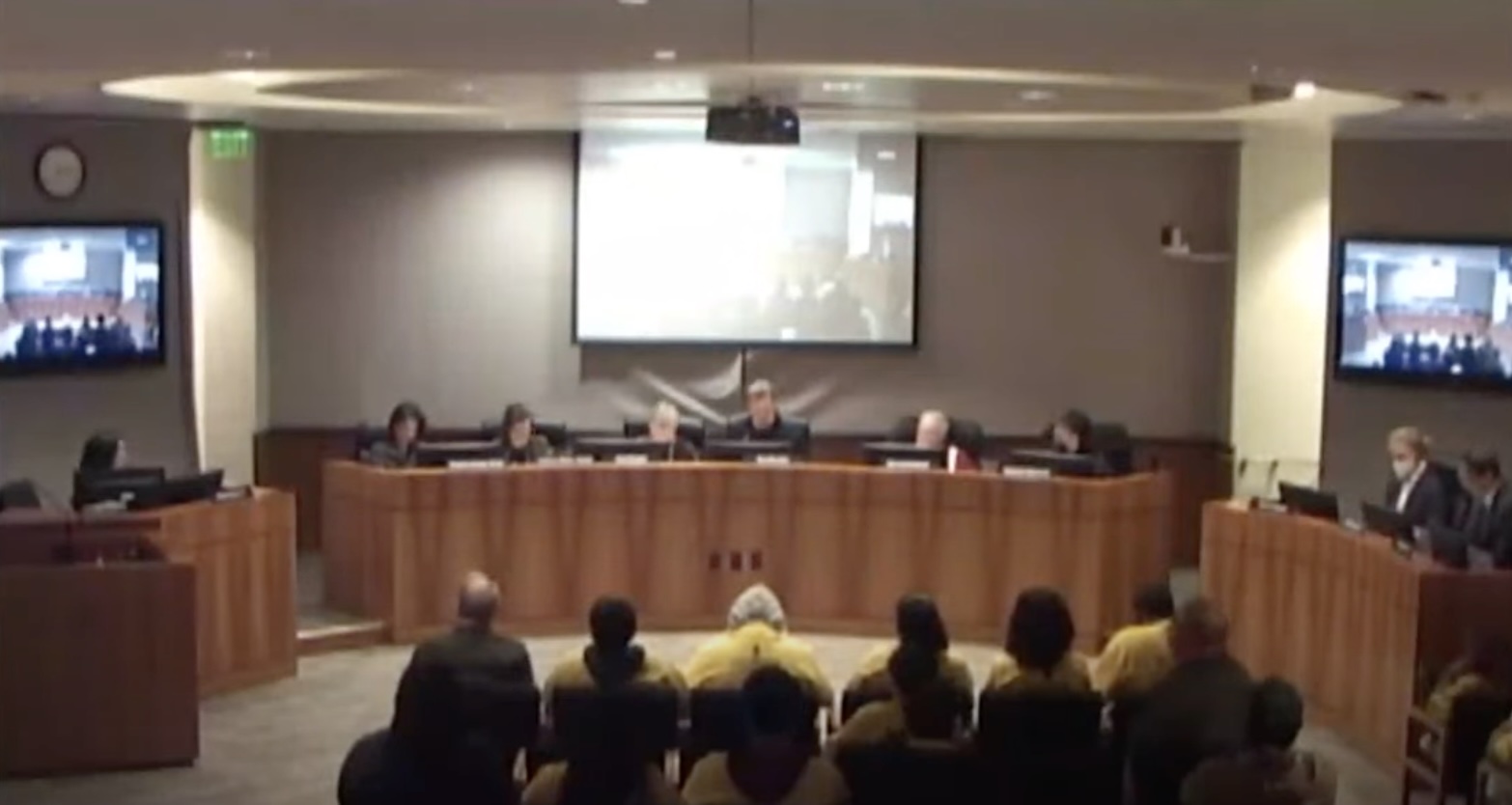|
Getting your Trinity Audio player ready...
|
PRESS RELEASE. From the San Mateo County Farm Bureau 3/11/2021. Farm Bureau Files Lawsuit against Coastal Commission to Protect Coastside Lands from Subdivision.
The San Mateo County Farm Bureau has filed a lawsuit against the California Coastal Commission regarding a Local Coastal Plan (LCP) Amendment to modify San Mateo County’s approval requirements for public agency land divisions for public recreation purposes in the Coastal Zone. The Commission characterized the LCP amendments as “minor”, saying they would not result in any cognizable environmental effects. The Farm Bureau’s lawsuit claims the amendments violate protections for agriculture contained in the California Coastal Act of 1976 and would result in potentially significant environmental impacts on agriculture and other resources for which mitigation was required under the California Environmental Quality Act. The lawsuit was filed in Sacramento Superior Court of California on March 3, 2021 by the law firm of Soluri Meserve. (Website: https://www.soluri-meserve.com/.)
MidPeninsula Regional Open Space District (MROSD) and Peninsula Open Space Trust (POST) had suggested the amendments in early 2020, which the Commission admitted would make it easier for public entities to develop low intensity, public recreational projects in the Coastside area by eliminating obstacles that might otherwise slow efforts to subdivide coastal land for recreational purposes. The amendments were approved by San Mateo County in Summer 2020 and then sent to the California Coastal Commission for concurrence in January 2021. The Farm Bureau opposed the amendments throughout the process, and suggested alternative means to reach the recreational goals without impairing the future of Coastside agriculture.
San Mateo County Farm Bureau President, BJ Burns, stated, “Our board of directors took this legal action to protect agricultural land on the Coastside of San Mateo County.” President Burns continued, “Farm Bureau was very supportive of having both MROSD and POST come to the Coastside several years ago for the main purpose of protecting agricultural land, in part by saving it from being subdivided. The Amendments allow subdivision without a permanent conservation easement to protect agriculture and open space values. When subdivisions occur on agricultural land, unsustainable parcels are often created.”
Osha Meserve, Attorney representing the Farm Bureau stated, “The future of coastal agriculture depends on maintaining common sense protections for agriculture when recreational uses are developed. Without these basic protections, the Coastal Act’s mandate to maintain the maximum amount of prime agricultural land in agricultural production to assure the protection of the areas’ agricultural economy is not met. We look forward to finding solutions with the Commission and the County to address the problems with these short-sighted amendments to the County’s well-considered Local Coastal Plan.”
San Mateo County Farm Bureau is a membership-based, non-profit organization that provides a voice for those involved in farming and ranching in San Mateo County. The Farm Bureau works on such issues as land use, water quality, predator control for livestock, farmworker housing, to name a few. For more information about the San Mateo County Farm Bureau, please contact Executive Director Jess Brown at (831) 818-1193, or email: smcfbhmb@aol.com .
Jess Brown, Executive Director, San Mateo County Farm Bureau
Cell: (831) 818-1193
765 Main Street, Half Moon Bay, CA 9401
From the:
San Mateo County Agricultural Advisory Committee
May 18, 2020
Voting Members: Robert Marsh (Chair), BJ Burns (Vice Chair), Lauren Silberman (Secretary), William Cook, Cynthia Duenas, Louie Figone, Judith Humberg, Peter Marchi, Natalie Sare, Ron Sturgeon, John Vars
Non-voting Members: Natural Resource Conservation Staff, SMC Agricultural Commissioner, Farm Bureau Executive Director, SMC Planning Staff, UC Co-Op Extension Representative
TO: SMC Planning Commission, SMC Board of Supervisors
400 County Center , Redwood City, California 94063
Re: Proposed Zoning Text Amendments – PLN2019-00258
Dear San Mateo County Decision Makers:
This proposal was presented to the Agricultural Advisory Committee (“the AAC”) in January as a simple matter “focused on correcting inconsistencies” between the California Coastal Act and the County LCP’s implementation zoning and subdivision texts in order to address future public recreational facility projects on lands owned or acquired by the “Project Sponsors” (MROSD and POST) and other public agencies in order to “facilitate public recreation while protecting agriculture lands.” After lengthy consideration, the AAC is unpersuaded that the purported inconsistencies exist and that the proposed text amendments are necessary. It should be noted that the Coastal Commission has certified the County’s LCP, along with its implementing ordinances and existing text, as consistent with the Coastal Act.
We believe that the request for text amendments, in fact, constitutes the equivalent of a zoning amendment covering most of the County’s rural lands without due consideration for the potential negative impacts on future ranching and agriculture due to the unfocused nature of the requested text amendments.
The proposed amendments would effectively exempt the Project Sponsors from the County’s LCP agricultural protective restrictions, specifically regarding the following two PAD requirements:
- Requirement for the recordation of agricultural and conservation/open space easements, and
- Requirement for maximum lot size of non-agricultural and non-residential lots associated with land divisions.
The possible further conveyance of large ranches from the private sector into the public domain, where it’s almost certain to remain forever, is not deemed a small matter by the AAC. While the Project Sponsors acknowledge the advantages of private ownership coupled with responsible stewardship of agricultural row crop land, when it comes to the sale of ranches and ranch lands, this impact has not been fully considered and different public agencies may not have the same commitment to protecting agricultural resources. Consequently, we believe that the details of the text amendments warrant further review and consideration because they are of broad and permanent consequences, as detailed in our recommendations below.
To address the two questions posed to our committee by planning staff regarding the proposed text amendments, we offer the following response.
- Any feedback on the potential effects on impacted agricultural uses as a result of the proposed text amendments? Any recommended conditions of approval or other questions to address?
The Agricultural Advisory Committee urges that the text amendments as proposed be rejected by the Planning Commission and the Board of Supervisors because the amendments are not specific enough and will have unintended consequences for impacted agricultural uses, detailed as follows:
- These text amendments would remove agricultural protections in place for all parcels created in a land division brought about in connection with the purchase of such land by a public agency for public recreational use. The text amendments do not clarify that the exemptions are only for the parcel intended for compatible public recreational use, and so additionally remove protections from remaining land parcels resulting from the division that remain intended solely for agricultural use. This would remove the requirement to record agricultural conservation easements that protect access to water and other important agricultural resources for farmers and ranchers alike.
- We hold the viewpoint that agricultural or ranch lands subdivided for the purpose of public use should maintain all protections for continued ranching and farming activities as well as access to vital agricultural resources. We recommend that a condition of approval include the maintenance of the existing agricultural protections for farms and ranches.
- What position do you recommend that the Planning Department staff take with respect to the project application?
The Agricultural Advisory Committee herein seeks to make the following three recommendations regarding the review and approval process, further details regarding proposed conditions of approval, and how to resolve our unaddressed questions:
1. Environmental Review
First, the AAC recommends that the County undertake a thorough environmental review that examines the implications of the text amendments on future agricultural and ranching activities on the stated lands. The AAC recommends a current environmental review for several reasons:
- The last environmental review of the MROSD’s mandate occurred in 2004, in association with the District’s annexation of (and the adoption of its “Service Plan”) for the Coastal Area of SMC. Since that date, the anticipated scope of the acreage to be acquired by the District has been reached.
- In this 2004 review, provisions for the subdivision of ranches for any purpose were not included in the analysis.
iii. We have unanswered questions regarding past subdivisions and the cumulative acreage that will be impacted by the proposal, including: • How many subdivisions have been approved in the PAD, RM-CZ, and RM districts since 1982?
- Is it safe to assume that the low number is in part because of the protections/restrictions of the requirements for conservation easements and restricted lot size for residential parcels?
- How many transactions have the Project Sponsors already done west of Skyline?
- How many parcels are currently in public ownership?
- How many of those publicly held parcels have current agricultural uses? • How many of those publicly held parcels have active recreational uses?
The Project Sponsors have correctly pointed out that their proposals would not change the underlying PAD or RM-CZ zoning of the lands subdivided pursuant to the approval of their proposed text amendments. However, we believe that does not provide adequate protections for ranches and farms because the permitted agricultural potential of the land would no longer mirror its underlying zoning. The County’s long stated preference, as expressed in its General Plan (2.18 – 2.19), that “soil protective uses..” and “specifically agriculture…” be given preference “in areas with productive soil resources” becomes irrelevant as ranches and agricultural lands are purchased and repurposed for recreational priorities. We also understand that County policies strive to keep ranches and farms intact, and as large as possible. Such is likewise the case with agricultural conservation easements generally; they merge and consolidate parcels within the covered agricultural property and its subdivision is ordinarily prohibited – in perpetuity.
We are unaware of any provisions of the LCP or the General Plan governing the development of recreational amenities within the County’s rural areas that over-rides their manifest principled prioritization afforded to the conservation of agriculture and agricultural lands.
2. Alternative Language
Second, the AAC recommends that the County consider adopting alternative text amendments that do not exempt the Project Sponsors and any public agency from the requirements of Sections 6361. B & 6906.1 that implement conservation easements to protect the sensible use and utility of subdivided agricultural lands. Instead, we support text amendments that expand the scope of agricultural protections to include ranching considerations as well as assurances to reduce the impacts of any public use that would limit activities regarding ranching and agriculture generally.
The AAC offers this proposed wording of such an amendment be substantially along the lines of the following:
Within the Planned Agricultural District and Resource Management zoned areas, in conjunction with any land division brought about by a public agency’s purchase of land suitable for agriculture greater than five acres for public recreational use, and upon the required Master Land Division Plan being filed and approved on condition that the public agency grant to the County a properly recorded agricultural easement (which the County shall accept and hold in perpetuity) contain a covenant, running with the land in perpetuity, that states that all recreational usage shall be minimized to the extent practicable, and the remainder that is not required for a permitted recreational use or the protection and vital functioning of a sensitive habitat shall at all times be kept and made available for agricultural uses, and permanently protected for agriculture.
This alternative proposal would simply require the Project Sponsors (and their successors) to do what they say they want to do, which is to permanently protect agriculture and keep both farms and ranches in production. The protection of agricultural uses can coexist with public recreational uses and can indeed be complimentary. The Mindego Ranch project can be held up as an example of implementation, where the County successfully protected agricultural activity by requiring the reintroduction of cattle ranching before the permitting for public access trails was granted.
3. Public Workshop
Third, the AAC formally requests that the County host a public workshop process to more specifically examine the key issues of agricultural conservation easements in instances of land subdivisions in order to allow public recreational use. This workshop process would invite important discussions of collaborative alternative solutions such as long-term equity building leases instead of the outright sale of farm and ranch lands.
We do not believe that the current process, where the Project Sponsors have presented their proposal at separate venues and committees, is adequate enough to consider the scope and magnitude of what these proposed text amendments would sanction for largely recreational development on agricultural lands. The implications of the proposed text amendments are nuanced and would be better served by a deeper exploration of the potential effects on impacted agricultural and ranching uses. The more proactively collaborative process of a public workshop would benefit all stakeholders effected by this proposal.
In conclusion, the Agricultural Advisory Committee believes that recreational and agricultural use can be complimentary and supports a balanced and functional integration of recreational activity with agricultural resources. We respect and appreciate the overall work of the Project Sponsors to facilitate and support multiple, complementary public access and recreation activities on coastal lands where it has been balanced with and complimentary to existing agricultural and ranching activities. In that spirit, we believe there are more specific, and perhaps simpler, solutions available that would achieve the Project Sponsor’s goals without the unintended consequences of the proposal that allows additional subdivision and intensification of nonagricultural uses on agricultural lands.
Thank you for considering our deeply considered input regarding this important matter. Signed,
____________________________________
Lauren Silberman, Committee Secretary, on behalf of the Agricultural Advisory Committee
This letter was finalized and approved at a Special Meeting of the AAC held on May 18, 2020 with the following voting results:
AYES: 7 NAYS: 0 RECUSALS: 2 ABSENT: 2
Cc: Melissa Ross, Senior Planner
Laura Richstone, County Planner/AAC Liaison
Steve Monowitz, Community Development Director
Michael Callagy, County Manager
John Beiers, County Counsel
Tim Fox, Deputy Counsel
MROSD Board of Directors
POST Board of Directors






